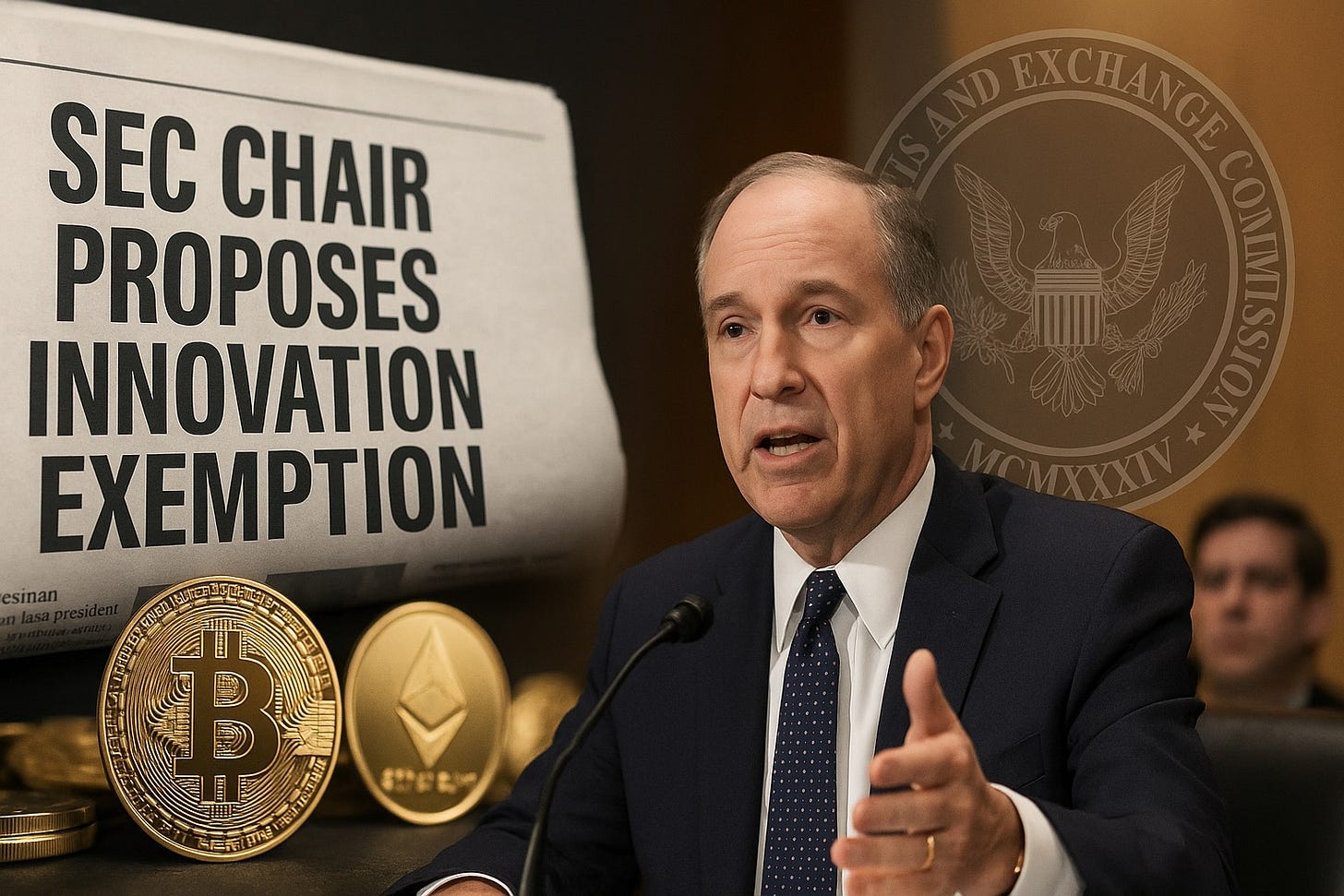Is This the Green Light Crypto Has Been Waiting For?
SEC Chair Floats “Innovation Exemption” for Crypto Firms
On September 23, 2025, Bloomberg Law reported that SEC Chair Paul Atkins is preparing a groundbreaking “innovation exemption” aimed at giving crypto firms temporary relief from legacy securities rules.
📌 What’s New
Atkins confirmed the SEC is actively drafting crypto-specific rules, with the exemption expected by December 2025.
The idea was first floated in July 2025, where Atkins described current securities requirements as “incompatible or burdensome” for novel digital asset businesses.
Under the plan, crypto projects could launch products faster without full compliance, while the SEC develops a tailored regulatory regime.
👉 Source: Bloomberg Law – SEC Chief Eyes Rule Exemptions for Crypto Trading
⚖️ What It Means
Faster Time-to-Market: Startups and token projects could bypass lengthy registration hurdles and test models in live markets.
Temporary Relief, Not a Free Pass: The exemption likely comes with conditions — qualifying projects, asset classes, and investor safeguards are still TBD.
Investor Protection Tensions: Critics argue the carve-out risks exposing investors to speculative or untested assets.
👉 Commentary: Cointelegraph – SEC Innovation Exemption for Crypto Products
🔮 What to Watch
December 2025 deadline: Can the SEC finalize both the exemption and a broader rulebook?
Clarity vs. Enforcement: The balance between investor safeguards and innovation freedom will determine whether this accelerates or stifles adoption.
Alignment with Congress: The exemption may interact with broader efforts like the CLARITY Act, which proposes statutory boundaries between SEC and CFTC oversight.
👉 Policy Note: Whiteford Law – US Crypto Regulation Update
✅ Bottom Line: If enacted, the “innovation exemption” could mark the SEC’s most pro-innovation stance to date, allowing crypto projects to launch and iterate without being strangled by legacy securities laws. But whether it builds long-term clarity — or just kicks the can — depends on how tightly it’s scoped and enforced.




“Your post about regulation’s green light got me thinking about how even as $162B vanished last month, the underlying infrastructure is shifting in ways that could make regulatory clarity a springboard, not a constraint. My latest piece explores how DEX wars and intent systems are unlocking new models for mainstream adoption. Would love thoughts: https://beyondthecoin.substack.com/p/the-162b-wipeout-dex-wars-explode”